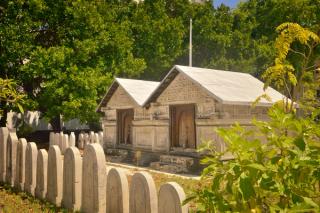
Religion in the Maldives
Religion in the Maldives
The Maldives is officially an Islamic nation, as declared in both the 1998 and 2008 constitutions[1][2]. The constitution does not provide for any rights of freedom of religion or belief, and all citizens are mandated by law to practice Islam. The legal system of the Maldives is based on Islamic or Sharia Law. The vast majority of the population practices Sunni Islam, with the government claiming a 100% Muslim population. However, independent figures in 2020 showed that the country is around 98.69% Muslim, with small minorities of Buddhists, Christians, Hindus, Baha'is, and agnostics. Citizens are required by law to practice Islam, and attempting to convert to another religion results in loss of citizenship.
How does this affect tourists?
Tourists visiting the Maldives need to adhere to several important rules and cultural norms. Firstly, it's important to note that pork products and alcohol are not permitted on local islands, including Malé, the capital city. Additionally, open religious practices contrary to Islam are prohibited. When visiting a local island, it's essential to dress modestly unless on designated "Bikini Beaches" where swimwear is allowed. Visitors should also be prepared to hear the regular calls to prayer, as it is a significant part of daily life in the Maldives. Respecting these customs ensures a harmonious experience and shows appreciation for the local culture and traditions.
On resort islands in the Maldives, alcohol and pork products are allowed to be consumed by tourists, and beachwear is permitted, although nudity is strictly prohibited. Some restaurants and bars may have a dress code, usually casual in nature. On every resort island, there is a mosque where Muslim tourists and staff can attend services. However, non-Muslim foreigners, including tourists and foreign workers, are typically allowed to practice their religions only in private, as public displays of non-Islamic religions are strictly prohibited. Tourists can possess a Bible for personal use, but no idols of worship, contrary to Islam, are permitted in the Maldives, respecting the country's Islamic identity.
The History of Religion in the Maldives
Buddhism was the predominant religion in the Maldives until at least the 12th century CE[3]. Although it's not clear how and when Buddhism was introduced to the islands, it's thought to have occurred around the 3rd century during the reign of Indian emperor Ashoka. Notable historical and cultural sites such as the Thoddoo Buddhist Temple and the Kuruhinna Tharaagandu, an ancient Buddhist monastery dating back to the 6th and 7th centuries, offer insights into the past spiritual practices. However, the last Maldivian king, Dhovemi, converted to Islam in 1153, resulting in the destruction of many Buddhist temples[4]. Despite this, archaeological discoveries have revealed valuable Buddhist relics, providing insight into the country's rich history. Even after the conversion to Islam, Buddhist influence remained prominent in later Maldivian architecture, art, motifs, and iconography.

Following the conversion to Islam, several Buddhist structures were repurposed into Islamic or secular sites, and portions of unused or ruined Buddhist sites were later reused for future structures. In February 2012, a group of Islamic extremists forced their way into the National Museum in Malé, destroying or severely damaging nearly the entire collection of Buddhist sculptures dating from the 6th to 12th centuries[5]. This act highlighted the ongoing tension between preserving the Maldives' Buddhist heritage and its Islamic identity. Despite these challenges, the Maldives remains a unique destination with a rich religious and cultural history.